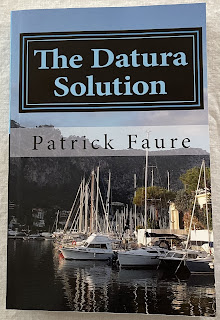READ
The book I chose for Myanmar, formerly known as Burma, was a
feast for the senses. Smile
as They Bow, written by Ni Ni Yu and translated by Alfred Birnbaum and
Thi Thi Aye, is filled with the sights, sounds, tastes, smells, and feelings of
Myanmar’s Taungbyon Festival, which is held for a week each year in a small
village near Mandalay. A raucous crowd of tourists and pilgrims from all over
the country pour into the village to honor two brothers who had been killed
during the reign of King Anawrahta in the eleventh century, and to seek favors
from the nats – god-like spirits who are represented on earth by natkadaws,
their spirit wives in human form.
Historically, natkadaws were women, and the position was often passed from mother to daughter. Over the past several decades, however, the position of natkadaw has been increasingly taken on by gay men, known as meinmasha. Smile as They Bow follows one such natkadaw, U Ba Si, who goes by the name of Daisy Bond. Sixty years old, he has collected many faithful followers, who pay him to appeal to the nats on their behalf. They ask for things like riches or success, or punishment for a wayward spouse. For the right amount of cash, Daisy promises that all their wishes will be fulfilled.
Daisy has a much younger lover, Min Min, whom he bought from Min Min’s mother. Over the years, Min Min has also taken on the role of Daisy’s manager, making sure that his extravagant costumes are ready for his processions and consultations, handling his schedule, and trying to keep him in check when he becomes too outrageous (the language in the book is R-rated, to say the least).
Daisy is a jealous lover, always convinced that Min Min is going to leave him for a woman. And when it appears that Min Min is starting to fall for a beggar girl who has been singing outside their house, Daisy fights to hang onto him.
Smile as They Bow is a fascinating portrayal of the Taungbyon Festival, which was banned during the reign of King Mindon in the nineteenth century. It was brought back as a distraction by the British shortly thereafter when they seized control of the country. I don’t know the current status of the festival, or whether Smile as They Bow is available to read in Myanmar or not. According to the book’s dust jacket, it “was suppressed for over a decade by the Burmese military government.” It's definitely one of the more memorable books I’ve read for this project!
COOK
Have you ever heard of tofu made from anything other than soybeans? I certainly hadn’t until I started searching for recipes for this post and discovered that chickpea tofu is popular in Myanmar. The process for making it is much simpler than making tofu from soybeans; chickpea flour and water are mixed together and boiled, while stirring constantly, until it reaches the right consistency. I followed a recipe from the Vegan on Board website to make the tofu, then fried it and ate it with a garlic, ginger, and chili sauce. It wasn’t bad, but I think I’ll stick with ready-made soybean tofu.
GIVE
Of all the projects for Myanmar listed on the GlobalGiving website, the one that
most appealed to me provides technical training in solar power and regenerative
agriculture. According to the project description: “Solar PV systems are now
widely used in Burma, but homeowners have no access to accurate information on
purchase, maintenance and repair of their systems. Rural electrification is set
to expand quickly, but there are few trained technicians available. Synthetic
fertilizers and pesticides are widely used by farmers, but they are unaware of the
negative consequences. Organic farming techniques need to be revived to improve
food quality and safety, and to address soil degradation and soil erosion.”
The hope is that this project will bring renewable energy into people’s homes, reducing their reliance on fossil fuels, and that transitioning to organic agriculture will lead to more healthy soil, safer and better quality food, and improved water quality due to decreased nitrogen run-off. More information about this project is available at Solar Power and Regenerative Agriculture in Burma - GlobalGiving.
NEXT STOP: NAMIBIA




















